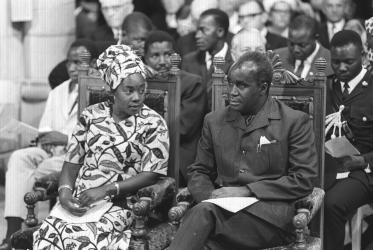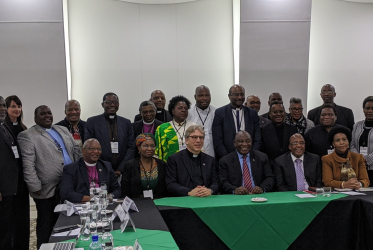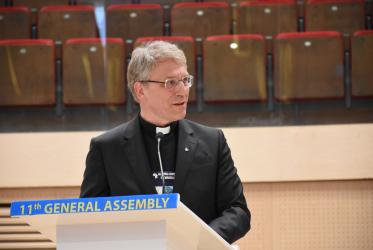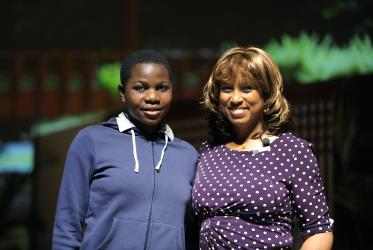Displaying 1 - 20 of 20
World mourns loss of Archbishop Desmond Tutu
30 December 2021
Young Africans are eager to grapple with challenges
09 January 2020
WCC delegation meets with South African President Ramaphosa
09 December 2019
Churches in southern Africa stand against violence, xenophobia
10 October 2019
Pan African Women of Faith issue fervent Call to Action
20 November 2018
Film recognized for highlighting human rights in DRC
18 April 2018
Tveit in South Africa: “ We know. We dare. We can.”
12 June 2016
Issues of justice in focus at WCC Busan assembly
06 November 2013












